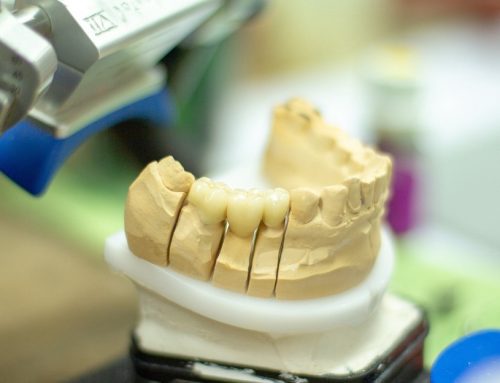Turning 50 is a remarkable milestone; one-third of Americans have already achieved this. However, surviving five decades of a life well-lived means your body has become weaker and more vulnerable to different ailments. This means you must now be extra careful about your well-being.
There’s no reason why 50-year-olds can’t keep their health intact. You can be middle-aged and still stay physically fit by following a few simple tips. Here’s what you need to know if you want to stay fit after 50:
- Avoid a sedentary lifestyle
A sedentary lifestyle isn’t healthy for young people, and it’s even worse for 50-year-olds. This lifestyle involves spending most of your time just sitting there (mostly in front of a screen). This isn’t good for your health. Your body wasn’t made for a sedentary lifestyle; instead, it’s supposed to stay active.
A sedentary lifestyle disrupts your body’s metabolism and leads to musculoskeletal problems, heart problems, gastronomic problems, and much more. When you enter your fifties, it’s time you start being more active. Walk instead of driving. Go up the stairs instead of taking the elevator. Do low-intensity workouts daily. These activities can keep your body active and prevent the onset of conditions that develop with old age.
- Don’t skip routine screenings
Many diseases start to manifest in your fifties, especially if you’ve indulged in unhealthy habits or have been exposed to certain risk factors over the previous decades. For example, mesothelioma is caused by long-term asbestos exposure and takes decades to appear for the first time. It is common among people who’ve lived in old homes throughout their lives, and among military and construction workers. You can learn more about this condition by visiting online resources like www.mesotheliomahope.com.
Nevertheless, routine screenings can help you discover and treat any major health issues in time. That’s why you should never skip a doctor’s appointment. You need to schedule regular screenings and show up for them to maintain your well-being.
- Keep yourself hydrated
Water helps regulate normal body temperature, lubricate and cushion joints, protects the spinal cord and other sensitive tissues, and helps remove toxic wastes through urination, perspiration, and bowel movement. These benefits make it more important for people above fifty to stay hydrated.
Now, there are many estimates regarding the ideal amount of water for human beings. One study suggests that drinking 56 to 64 ounces of water every day keeps a person healthy and fit. However, another study suggests that men should drink 13 and women should drink 9 cups of water each day.
You can drink tea, smoothies, milkshakes, and orange juice to stay hydrated. Try drinking a few sips of sparkling water to make this habit more exciting.
- Reduce your salt intake
Limiting your sodium intake prevents high blood pressure and other health issues. As you grow older, your body becomes more sensitive to the harmful effects of salt. So, try to consume no more than 5 grams of salt daily. Avoid eating salty foods and cook your meals with healthier alternatives, such as h basil, nutmeg, cayenne, or cinnamon. These ingredients make your food taste better and keep you healthy too.
- Quit smoking and drinking
There’s no age better than 50 to quit smoking, drinking, and other harmful habits. Smoking leads to different long-term health risks since nicotine is a known carcinogen. Excessive alcohol consumption causes numerous health issues, such as liver diseases, heart problems, high blood pressure, and even major digestive issues.
Hence, it’s better to give up these two unhealthy habits if you want to maintain your well-being after 50. If going cold turkey is tough, do it gradually and seek professional help if you need it.
- Consume more nutrients and proteins
Since your dietary requirements will change as you grow older, eat what your body needs to stay healthy at a later age. Eat macronutrients (carbs, fats, and proteins); your body needs these nutrients in large amounts. Also include micronutrients (minerals and vitamins) in your diet; these will improve your bone health, immunity, and the production of red blood cells.
You should also eat more anti-inflammatory fats in your fifties, such as omega-3 fatty acids. You can find them easily in leafy-green vegetables. Avoid inflammatory fats, such as omega-6 fatty acids in lard and butter.
- Get enough sleep
Neglecting to give your body the rest it requires can cause several health issues post-50. Not getting enough sleep can lead to memory impairment, diminished immune function, increased risk of heart disease and diabetes, and exhaustion.
While sleeping, your body heals and rejuvenates itself and helps to slow down the body’s natural aging process. It’s good for your overall well-being. Adults must rest for 7 to 8 hours daily, so try to develop a healthy routine that helps you sleep better at night.
- Manage your mental health
Your mental health is just as important as your physical well-being. Many mental health problems become more apparent as you grow older. Research suggests that midlife depression creeps up in women in their 40s and in men in their 50s and becomes a major problem. How do you overcome stress, anxiety, or depression? Here are some possible remedies:
- See a professional
- Get counseling or therapy
- Engage in stress-reducing exercises
- Do yoga, reiki, and other Eastern exercises
- Socialize with your friends and avoid isolation
- Socialize with your friends
Socializing with others helps you improve your mood and mental health. Hence, avoid being asocial. Arrange meetups with friends, visit some family members, rekindle long-lost connections, or take a walk in the park to chat with acquaintances. Use social media to connect with loved ones.
The risk of dementia and Alzheimer’s always frightens 50-year-olds. However, being social lowers this risk and makes you mentally sharper. Isolation, however, makes you vulnerable to depression.
Conclusion
It may seem difficult to stay mentally and physically healthy in your fifties. However, you can do that by eating and drinking healthy, staying active, and replacing unhealthy habits with healthier options. Give up smoking and drinking, don’t eat junk food, and don’t be asocial. It’s also important to see a doctor regularly to stay on top of your declining health as you age. Following these simple tips will ensure you’re up and about after your 50s.








Leave A Comment